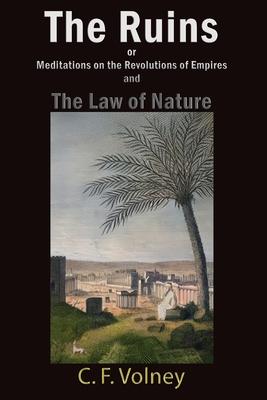The Ruins, Volney's most influential work, appeared in 1791, and soon became a revolution inside a revolution. According to the Britannica encyclopedia, The Ruins "epitomized the rationalist historical and political thought of the 18th century" and was among the most widely read ones in Europe until the 1850s, years when Volney was considered one of the most notorious philosophers in Europe. The Ruins inaugurated a new age of questioning, paving the path to academical research on the historicity of the real Christ, initially in Germany in the 19th century, and soon in whole Europe and in the United States. Today, scholars, experts in Greek, Hebrew, and Latin, and University Professors write books published by Universities explaining how Gospels were really written, how biblical verses were forged, what kind of influence the miracles and teachings in the biblical gospels had from ancient myths etc.

The Ruins or Meditations on the Revolutions of Empires and The Law of Nature
The Ruins, Volney's most influential work, appeared in 1791, and soon became a revolution inside a revolution. According to the Britannica encyclopedia, The Ruins "epitomized the rationalist historical and political thought of the 18th century" and was among the most widely read ones in Europe until the 1850s, years when Volney was considered one of the most notorious philosophers in Europe. The Ruins inaugurated a new age of questioning, paving the path to academical research on the historicity of the real Christ, initially in Germany in the 19th century, and soon in whole Europe and in the United States. Today, scholars, experts in Greek, Hebrew, and Latin, and University Professors write books published by Universities explaining how Gospels were really written, how biblical verses were forged, what kind of influence the miracles and teachings in the biblical gospels had from ancient myths etc.